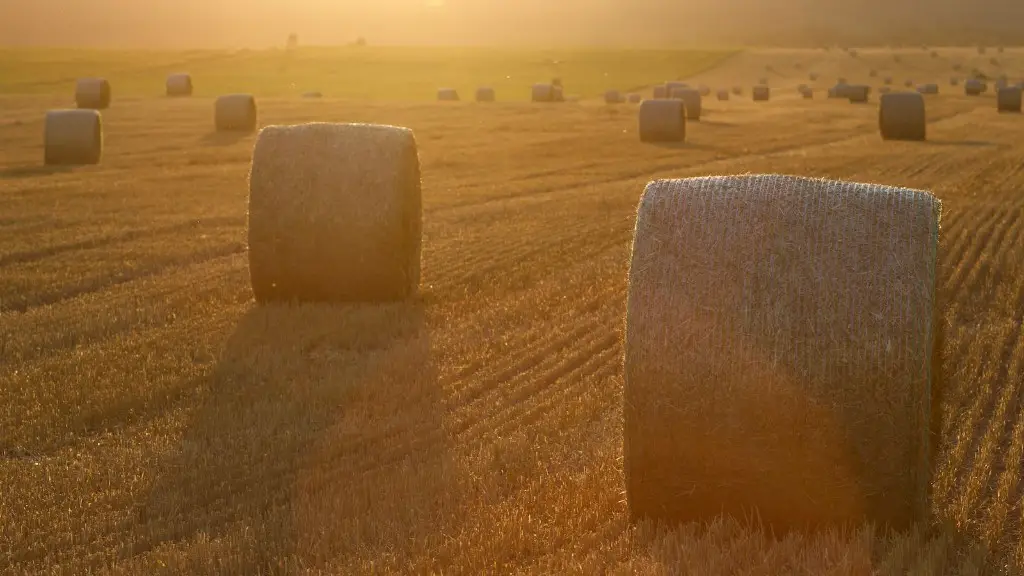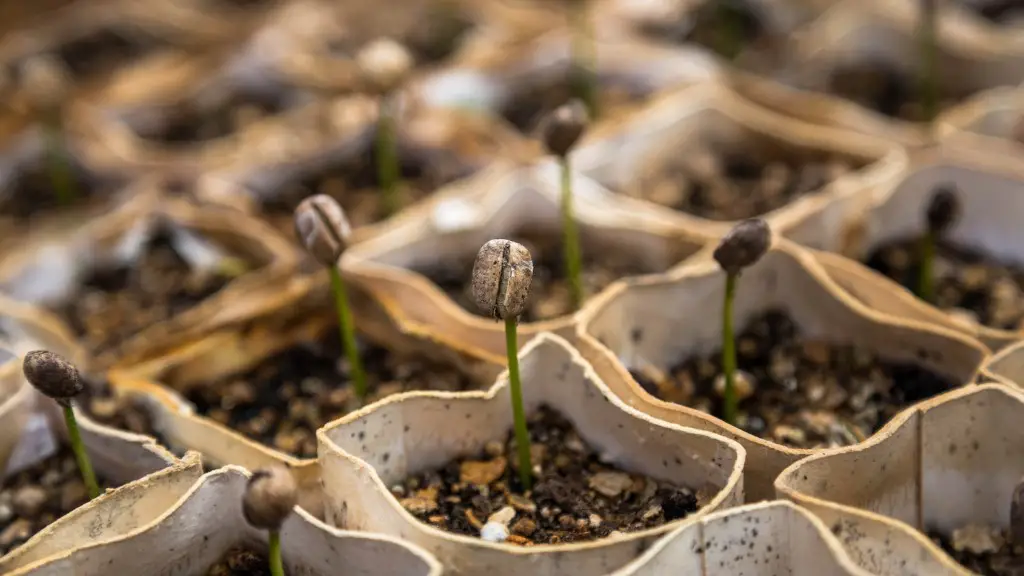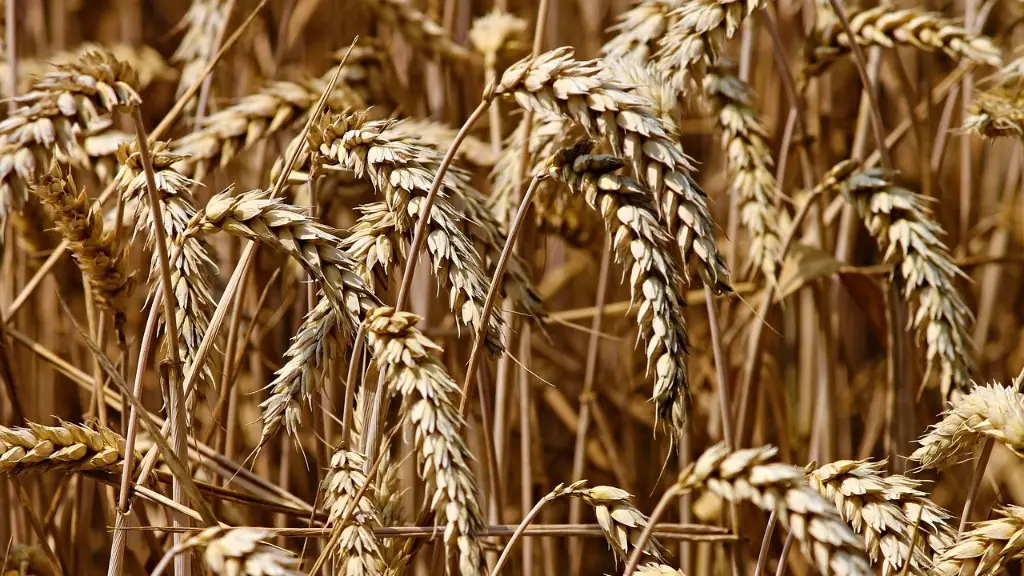Most people take for granted the foods we eat, the comfortable clothes we wear and the various amenities that aid us in leading a modern lifestyle. What is often overlooked is the tireless effort put in by agriculture to create these possibilities. But if, for a day, agriculture were to be suspended, the consequences would be wide-reaching and highly disruptive.
The first and most obvious consequence of a day without agriculture would be that we’d have nothing to eat. Most of our diets rely on agricultural production, and without it, those who rely on groceries would have limited food options. There would also be the immediate lack of fresh produce, as most of it needs to be grown and harvested over a certain period. Our eating habits wouldn’t just be disrupted for a day, either: Fresh ingredients for days, or even weeks, would not be available.
Technical advancements in agricultural also affects the food we eat. In fact, modern farming has enabled us to cultivate a diverse range of crops, which has resulted in a variety of foods and flavors. Without agriculture, many of the food we eat today would not exist.
The absence of agriculture would also put a strain on our resources. The need for fertilizer, pesticides, and other farm supplies would be hindered as well, since all these are obtained through agriculture. Additionally, with no agriculture, water management would be impacted. This would mean limited access to water, putting pressure on all our existing water sources.
A suspension of agriculture would also have an impact on the economy. Many businesses depend on farming and food processing and without them, those jobs would be put in jeopardy. Rural communities would be further impacted, as they rely heavily on agriculture as a source of income and employment.
Finally, without agriculture, the environment would suffer too. In fact, modern farming has helped in preserving biodiversity, by providing habitats for a variety of species. It has also helped in maintaining soil health and reducing water pollution.
Negative Impact On Gender Matters
A day without agriculture would have a significant negative impact on gender matters. In many rural parts of the world, women are dependent on farming for their income. This dependency is often used to exploit their labour, by not providing the legal wages or offering them the means to improve their skills. Women-lead farms can also face difficulties in accessing agricultural loans, which negatively impacts their access to capital.
Without any kind of farming, the effects on women-run farming operations would be amplified. This is because women are more likely to be involved in subsistence farming, and so they would be heavily impacted by any disruptions in the farming cycle. Women-led businesses would also suffer, as their customer base would decrease due to the lack of accessible produce.
Furthermore, without access to the resources necessary to produce agricultural output, access to technologies by rural women would be hampered. This would mean that women would have limited means to create and leverage mechanization for better efficiency and yield.
Overall, it is evident that a day without agriculture would have a significant negative impact on gender matters. It would find it difficult to access agricultural technology and resources, as well as land rights, adversely impacting their ability to remain economically viable.
Environmental Impact Of A Day Without Agriculture
The environmental impact of a day without agriculture would be significant, due to the wide range of impacts it has on our ecosystems. The lack of farming would result in a reduction in deforestation, as more forests and natural habitats would remain untouched for longer periods of time. Additionally, farming practices are responsible for land degradation and soil erosion, which would be mitigated if it were not for the fact that farming operations would be suspended for a day.
A day without agriculture would also lead to a reduction in water pollution, as there would no longer be the need to use large amounts of pesticides and other chemicals to protect crops. This would reduce the amount of harmful chemicals entering our waterways, as well as improving the quality of drinking water.
The lack of agricultural activity would also contribute to a decrease in atmospheric pollution. Farms use significant amounts of fuel, which releases greenhouse gas emissions into the atmosphere. A single day without agriculture would have a minimal effect, however, over time the cumulative effect of avoiding farming emissions would be far more significant.
Moreover, biodiversity would be encouraged by a day without any farming, as it would help to create and protect more natural habitats and wildlife areas, taking more pressure off endangered species. Additionally, it would reduce the amount of soil erosion, reduce the amount of land converted for agricultural purposes, and help conserve soil fertility.
Positive Impact On Rural Communities
A day without agriculture would also have positive impacts on rural communities. First and foremost, it would ease the financial burden on farmers and their families, as the cost associated with farm operations would disappear for a day. This would mean that their earnings would not be spent on buying inputs and supplies for their operations, allowing them to invest in other needs.
Furthermore, the stress associated with farm operations would be reduced for one day. This could enable them to relax and reset, making them more productive when they resume farming operations. This would, in turn, translate to higher productivity and better working conditions.
Additionally, the absence of the need to farm would enable farmers to pursue other activities. This could, therefore, lead to an increase in entrepreneurial activities in rural communities, as more farmers would be available to pursue new business ventures and build small businesses in their local area.
This could have a long-term positive effect on rural areas, as more jobs and opportunities would be available, leading to economic growth and development. Moreover, with more opportunities available, more people might be inclined to stay in their hometowns, and even return from urban cities to pursue the new businesses.
Economic Impact Of A Day Without Agriculture
A day without agriculture would also have a significant impact on the global economy. Crops play an important role in sustaining a stable economy, as the production and consumption of agricultural goods is a major source of income for many countries. A suspension in agricultural activities for a day would thus have a ripple effect, affecting not just the agricultural sector but also other industries.
For instance, the food processing industry would be affected, as there would be no food available to process, thereby leading to job losses and economic decline. Additionally, the absence of agriculture would lead to a decrease in prices of food in the markets, due to the absence of supply. This would directly impact the farmers, as they would suffer losses in terms of profits.
Moreover, the availability of resources used in agricultural activities would also decline. This is because these resources, such as fertilizer and pesticides, are largely obtained through agricultural production. Hence, without agriculture, these resources would not be available and their prices would increase.
On the other hand, a day without agriculture could also result in some positive economic effects. For instance, the need for agricultural machinery and equipment would decline, as there would be no need for it. This would free up finances for new investments in other areas, such as research and development. Similarly, the need for oil and other petroleum products would decline, leading to a reduced dependence on fossil fuels and fewer emissions.
Impact On Global Trade
A day without agriculture would also have serious implications for global trade. In addition to affecting the production and consumption of farm goods, it could also lead to increased transportation costs. This is because most food is transported to its destination before it is processed, and without the availability of fresh produce, the transportation costs could increase significantly.
Furthermore, it could also mean a decline in agricultural exports, as the market demand is likely to be lower in the absence of a strong supply. This could lead to fewer export opportunities for countries that rely on agricultural production to maintain their economy.
Moreover, the effects would not be limited to the agricultural sector. The absence of agricultural activity would affect numerous other industries, as most industries, particularly the textile and garment industry, rely on agriculture as an input. This would lead to an overall decline in global trade, with a negative effect on the world economy.
Finally, a day without agriculture could also create supply chain disruptions. Without a steady supply of fresh produce, manufacturers and retailers may have to resort to alternate supply sources, resulting in higher costs. Additionally, there could be delays in deliveries, leading to customer dissatisfaction and a decline in consumer spending.





